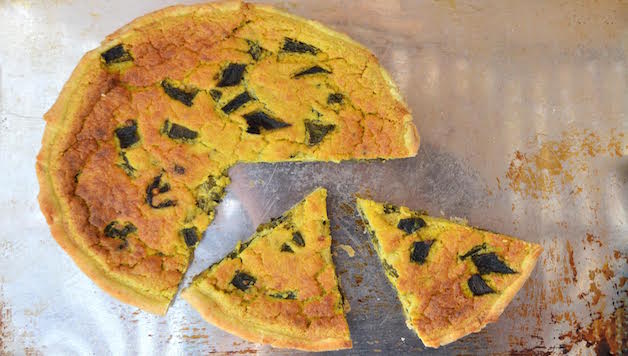Zsu Dever Just Wrote an Entire Cookbook about Bean Juice, and It’s Awesome
Photo courtesy of Zsu Dever
Until 2014, aquafaba was known simply as “bean juice” or “the liquid from cooking chickpeas”— when anyone thought to call it anything at all as they dumped it down the drain. Then some vegans in France figured out that you could whip that liquid into a foamy, meringue-like substance. The internet quickly found out, and in a Facebook group called “Vegan Meringue – Hits and Misses!” went to work exploring the possibilities of this apparent egg substitute. The verdict: nearly endless.
In October, Vegan Heritage Press published Zsu Dever’s Aquafaba, the first official cookbook and comprehensive guide to using the stuff. We caught up with Dever for a Q&A about what it was like to be the first person to write about a revolutionary new ingredient.
Paste: What’s your aquafaba meet-cute? As in, how did you first come together?
Zsu Dever: Aquafaba and I had about the same romance that many other vegans have had: We met the day Goose Wohlt made his dramatic reveal of his meringue cookie on the Facebook group What F.A.T. Vegans Eat. It was like a bomb went off in the vegan community. You’ve heard of things going viral; well this was lighting fast. A very little time later a new Facebook group formed, Vegan Meringue – Hits and Misses! (now just known as Aquafaba), and today, a little over a year later, it has more than 55,000 members and aquafaba is going down in culinary history.
Paste: What’s the first thing you ever made with aquafaba?
ZD: First I made those meringue cookies, because to think that something so odd — bean cooking water — could turn into airy, white, billowy clouds of fluff seemed the stuff of make-believe. It was pure magic. I was in awe, as I am sure many of us were as we began whipping the liquid gold into fluffy clouds.
Paste: What made you decide that you were the person to write the first book about aquafaba?
ZD: I was actually a little hesitant. When I first decided that someone was going to write a book about this, I figured, why not me? [This would be Dever’s third cookbook.] And so I started experimenting with it. But for me, my first experimentation was trying the hard stuff: angel food cake, pate a choux, omelets, etc. I wanted to see just how far aquafaba could be pushed. It turned out that its limit was easy to find. Aquafaba, because it is made mostly of starch, some protein, and no fat, acts very differently than egg whites. After thinking about it, I knew that I could make it work for a lot of recipes, but I would need some extra ingredients to complement the abilities of aquafaba. Since I am a scientist at heart, this was the perfect subject for me. I analyze things in detail and make things over and over again until I am sure they work. Because aquafaba is a very technical ingredient, I felt it needed someone with a special eye toward its scientific aspects.
Paste: How would you have described your relationship with chickpeas before you started
working on this book?
ZD: “Love affair” would be accurate. Chickpeas are extremely versatile, both in terms of nutrition (they’re high in protein, carbohydrates and fiber), and in terms of culinary ability. They can go from making omelets to hummus to chana masala. Legumes themselves are one of the healthiest foods on earth.
Paste: How would you describe it now?
-

-

-

-

-

-

-

-

-

-

-

-

-

-

-

-

-

-

-

-

-

-

-

-

-

-

-

-

-

-

-

-

-

-

-

-

-

-

-

-









































